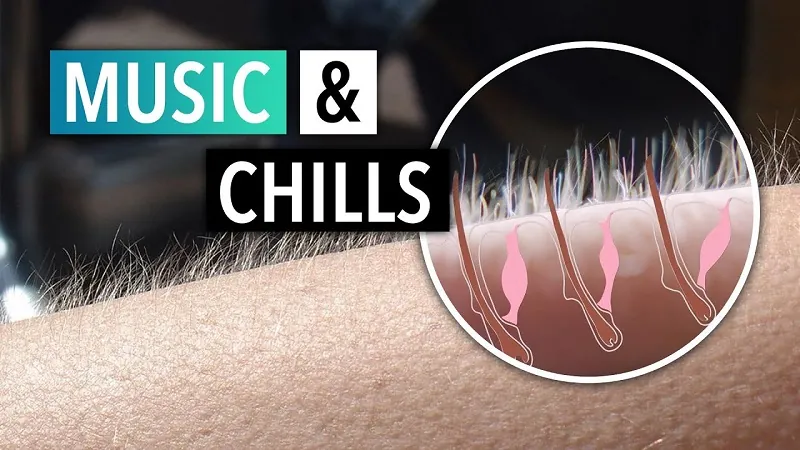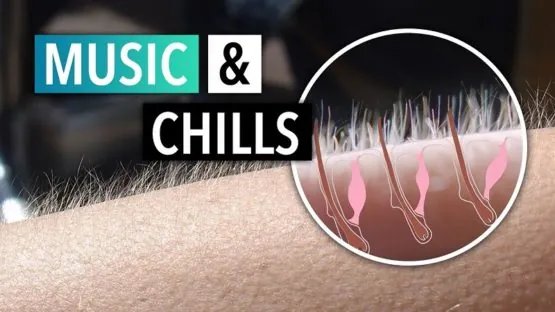This episode of Science to Save the World focuses on the well-known ‘chills’ reaction when listening to music and explores why this might occur.
Script
How can music give you chills? And what role does this play in biology?
We’ve all had moments where a favorite song comes on in the car, at a concert, or even while sitting at home. And seemingly out of nowhere, we get goosebumps, a tingling sensation, or a shiver. Why does that happen?
One interesting potential explanation claims that our minds are racing ahead as we listen to music, and we get chills when our predictions of what comes next are completely wrong. Or maybe people who experience chills have more neural connections between their auditory and reward systems. Some researchers believe that more empathetic people are more likely to get the chills due to emotional contagion. Emotional contagion refers to an automatic adoption of another person’s emotional state.
In a new study, French neuroscientists using electroencephalography (EEG) have linked chills to multiple brain regions involving activated reward and pleasure systems. The findings were published in the journal Frontiers in Neuroscience. Thibault Chabin and colleagues at the Université de Bourgogne Franche-Comté in Besançon used EEG to scan the brains of 18 participants who regularly experience chills while listening to their favorite musical pieces. The study’s participants were able to pinpoint precise “chill-producing” moments in the songs, but the majority of musical chills occurred throughout the samples, and not just at the predicted moments.
Chabin observed specific electrical activity in several brain areas when participants felt a chill. These included: the orbitofrontal cortex, a region involved in emotional processing, the supplementary motor area, a mid-brain region involved in movement control, and the right temporal lobe, a brain region involved in auditory processing and music appreciation. These areas collaborate to process music, activate reward systems in the brain, and release dopamine, a “feel-good” hormone and neurotransmitter.
Tingly chills are a physiological response thought to indicate greater cortical connectivity when combined with the pleasurable anticipation of your favorite part of the song. Using EEG, a non-invasive, highly accurate technique, to measure this phenomenon opens up new avenues for research
When people experience musical chills, low frequency electrical signals called “theta activity” either increase or decrease in brain regions involved in musical processing. Theta activity is associated with successful memory performance in the context of high rewards and music appreciation. Unlike PET scans or fMRI, which require heavy neuroimaging machinery, EEG can be used outside of the lab in natural scenarios.
The study included 18 healthy people, 11 of whom were female and seven of whom were male. They were 40 years old on average, and sensitive to musical reward, and they frequently experienced chills. Researchers performed a high-density EEG while participants listened to 15 minutes of 90-second excerpts of their favorite musical pieces. Participants were instructed to rate their subjective feelings of pleasure and indicate when they felt chills while listening. They reported 305 chills, each lasting an average of 8.75 seconds. These findings suggested increased brain activity in areas previously associated with musical pleasure in PET and fMRI studies.
Why should we continue to study chills? All human cultures play music. It’s like speech. But does music have any evolutionary or biological benefit? The role of dopamine and reward systems in processing musical pleasure suggests an ancestral function for music. This function could be found when we anticipate the “chill-inducing” section of the music. While we wait, our brains are forecasting the future, and producing dopamine. Anticipation of future events is essential for survival, and evolution. The phenomenon of musical pleasure deserves further investigation to understand why music is rewarding, and so important to us. Going further, scientists want to see how multiple participants’ cognition and physiology interact in natural, social musical settings.
What are some songs that give you chills? Answer in the comments below!



